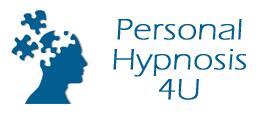What is hypnosis?
Hypnosis is a state of deep relaxtion and focused concentration. It is a type of mind-body medicine.
A trained hypnotherapist guides you into this deep state of focus and relation with verbal cues, repetition and imagery. When you are in hypnosis, this intense level of concentration and focus allows you to ignore ordinary distractions and be more open to guided suggestions, enabling you to make changes to improve your health.
Is Hypnotherapy similar to “Stage” Hypnosis?
No. “Stage” hypnosis uses hypnosis for the amusement of the audience. Hypnotherapy uses hypnosis for the benefit of the client. With hypnotherapy you will go into a deep, relaxed state, where you will feel very calm, relaxed and safe. Most stage hypnosis is actually “auto-suggestion”. You go to a show expecting to be hypnotised, so when you are told you are hypnotised, you believe it and will act how you think a hypnotised person acts, as you have seen in movies and on TV, and so you will do all sorts of stupid behaviours.
How does hypnosis work?
How hypnosis works is not completely understood. However it is commonly believed that in the deep state of focus and relaxation that is achieved with hypnosis, several things happen:
Your conscious mind becomes quieter and less intrusive.
You are able to tap into the unconscious part of your brain where your thoughts, beliefs, perceptions, sensations, emotions, memory and behaviours are stored.
In this state, you are more open to gentle guidance from your hypnotherapist to help you modify or replace the unconscious thoughts that are driving your current behaviour. Hypnosis doesn´t last forever, instead it gives you a new habit, so it becomes your habit not to smoke, not to eat chocolate etc.
If I´m hypnotised, do I give up control?
No. Hypnosis is a streamlined state of focused attention, similar to when you are absorbed in a book, a film or a sport. You have the ability to emerge from hypnosis at any time if you wish. Your hypnotherapist could be described as a guide taking you on a journey; they are the facilitator but any change can only be made by you. Realising that you are in control and can make changes yourself can be very empowering. The more often you choose to go into hypnosis the easier it is to relax into the process, secure in the knowledge that you remain in control and can end a session of hypnosis at any point, should you wish to. As most people find hypnosis deeply relaxing and a very pleasant experience, they rarely choose to do this, but they are aware that they could if they wanted to.
How long do hypnotic suggestions work?
Usually, hypnotic suggestions last from 2 or 3 weeks to 2 or 3 months. Hypnotherapy works by giving you new habits. It becomes your habit not to smoke. It becomes your habit not to panic. 17 years ago, whilst training, I had hypnosis to stop eating chocolate. I was a chocoholic, out of control. It is still my habit today, to not want chocolate. I have never bought chocolate since that time.
What does it feel like when you´re hypnotised?
Hypnosis is a natural state of mind similar to daydreaming. People are often surprised that they can hear what is being said and can move or speak if they want to. Everybody’s experience of it is different and may vary each time they go into hypnosis. Some people describe hearing every word the therapist says, while others find their mind wanders. Many people lose track of time when they are in hypnosis. How aware or unaware you are during the process is unimportant and does not affect the effectiveness of the session. Relaxation isn’t essential to hypnosis, but most people describe being very relaxed during and after the session and more enjoyable than they expected.
What happens if we lose the internet connection?
The vast majority of people are aware of everything whilst hypnotised so if we lose connection, you will simply bring yourself out of hypnosis and re-connect. With the small number of people who fall asleep during hypnosis, their unconscious will get bored that nothing is happening and will awaken you within a couple of minutes. It is impossible to be “locked in” hypnosis.
What conditions can be helped by hypnotherapy?
Many conditions can be helped by hypnotherapy, including weight loss, pain control, stopping smoking, stress and anxiety, fears and phobias and much more. We offer a free 20 minute video consultation/taster session so you can discuss your needs and find out if hypnotherapy can help you.
Is the success of hypnotherapy guaranteed?
The short answer is no. The therapist is only a guide, showing you how to connect with your unconscious mind, that inner power within us all. The success of hypnotherapy depends on how much effort you put in.
How effective is hypnotherapy?
In 1970 Alfred A. Barrios carried out a large scale research into different therapies. He compared 1,018 studies and articles on hypnosis, 899 articles on psychoanalytic therapy and 355 articles on behavioural therapy. He noted the overall lasting success rates of the different therapies. He found out that Hypnotherapy had a massive 93% success rate after only 6 sessions compared to only a 72% success rate with behavioural therapy (after 22 sessions on average), and only 38% success rate with psychotherapy (after an average of 600 sessions).

